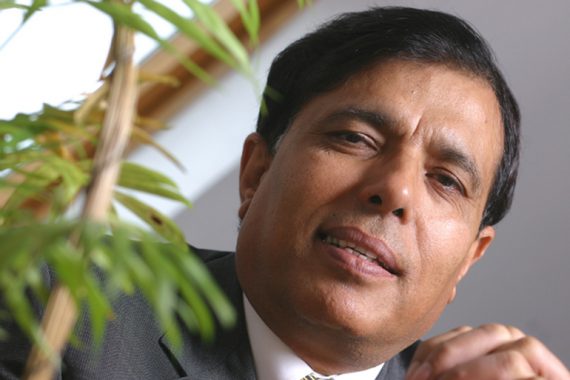Is the extra £3.8bn for the NHS really new money?

Simon Stevens’s influence in achieving a headline-grabbing comprehensive spending review deal for the NHS needs applauding.
He has lived up to his name by compelling George Osborne to cough up £3.8bn for the NHS. It’s the NHS’s very own David vs Goliath (Osborne). But watch George Osborne, one of the best masters of spin.
In 2005, there was the flat-tax George. By 2007, he was promising to match Gordon Brown’s spending plans. Then he was the great fiscal hawk, promising to eliminate the deficit within one parliament. And now £3.8bn extra for the NHS. Is it really new money?
Any additional investment in the NHS is welcome, particularly at a time when hospitals are forecasting an eye-watering deficit of £2.2bn this year, and when demand for both primary and secondary care is going up. Mr Stevens, in his five year forward plan for the NHS, set out a number of ‘tests’ for the Government. It looks like at least three of those tests – investing in social care, primary care and ‘making good’ on public health – won’t be met.
My concern is, if the new money is simply used to plug a growing black hole in NHS finances and if it’s funded by raiding budgets for, public health and older people’s care, then it won’t feel like new money at all.
The universal healthcare provided by the NHS is in serious danger of becoming unsustainable
Increases in spending are increasingly falling behind increases in demand and costs, as well as the NHS’s ability in the short-term at least to make ends meet through productivity improvements. As a result the NHS is struggling to meet its obligations to patients. And Messrs Cameron/Hunt are obsessed with the seven-day NHS. Don’t forget, the NHS still has to find cost savings of £22bn by 2020.
Hospital trusts are heading for a record end-of-year deficit of around £2 billion. And the DH is telling us in their press release: ’Additional funding will allow the NHS to offer 800,000 more operations and treatments, 2 million more diagnostic tests, 5.5 million more outpatient appointments and spend up to £2bn more on new drugs that patients need.’ What a deceptive spin.
If the new money is simply used to plug an ever growing deficit in the NHS finances, funded by raiding budgets for older people care and public health, then it’s not new money at all, will be counterproductive and a ‘false economy’. To date, we have seen £1.4bn wasted on redundancy payments, £7.8bn on agency and consultancy firms, and £500m in negligence. That’s more than £9.5bn that could have been used for patient care.
A key factor is that patient demand is constantly increasing because of an ageing population. By 2011, the number of people aged over 65 had surpassed 10m. By 2031, it is predicted to hit a new peak of more than 15m. As many of these patients enter their 70s and 80s, they will develop increasingly complex health needs that require longer consultations and more intense, complicated care from their general practice.
By the beginning of the next decade, there will be one million people living with dementia alone, while many more will have other conditions such as heart disease, diabetes, and additional degenerative conditions. In the majority of cases, an older patient will have a number of these conditions at the same time. It is vital that social care is funded adequately to meet this growing challenge, otherwise there will be even greater pressure on health budgets. Cuts of billions of pounds to local government budgets could have a knock-on impact on NHS services.
The NHS bill for the treatment of acute illnesses will keep on soaring and our society will be the poorer for it, in both financial and health terms, if we ignore the investment in public health.
The NHS has not faced this level of challenge in its history. The universal healthcare provided by the NHS is in serious danger of becoming unsustainable. Even at this stage, David Cameron, who pledged his loyalty to the NHS before the general election, needs to halt his futile and expensive obsession with seven-day NHS.
Mr Cameron should concentrate on transforming the NHS from being a sickness service that diagnoses and treats into one that also promotes health and pre-empts sickness by investing in primary care, social services and public health.
Dr Kailash Chand OBE is the deputy chair of the BMA, and a retired GP. He writes in a personal capacity.
Pulse July survey
Take our July 2025 survey to potentially win £1.000 worth of tokens












